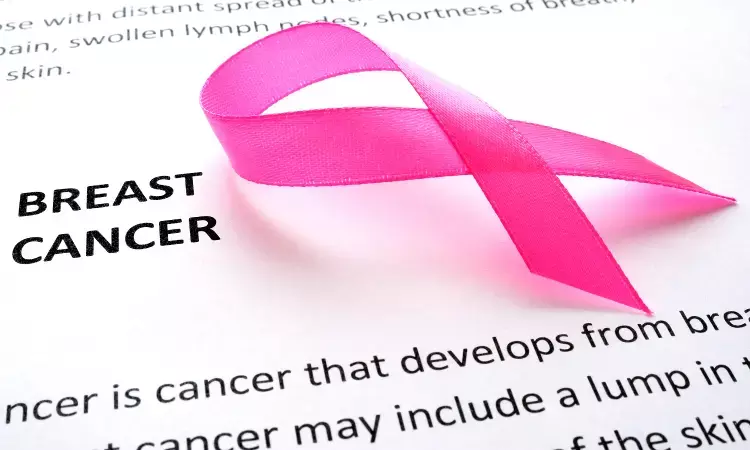- Home
- Medical news & Guidelines
- Anesthesiology
- Cardiology and CTVS
- Critical Care
- Dentistry
- Dermatology
- Diabetes and Endocrinology
- ENT
- Gastroenterology
- Medicine
- Nephrology
- Neurology
- Obstretics-Gynaecology
- Oncology
- Ophthalmology
- Orthopaedics
- Pediatrics-Neonatology
- Psychiatry
- Pulmonology
- Radiology
- Surgery
- Urology
- Laboratory Medicine
- Diet
- Nursing
- Paramedical
- Physiotherapy
- Health news
- Fact Check
- Bone Health Fact Check
- Brain Health Fact Check
- Cancer Related Fact Check
- Child Care Fact Check
- Dental and oral health fact check
- Diabetes and metabolic health fact check
- Diet and Nutrition Fact Check
- Eye and ENT Care Fact Check
- Fitness fact check
- Gut health fact check
- Heart health fact check
- Kidney health fact check
- Medical education fact check
- Men's health fact check
- Respiratory fact check
- Skin and hair care fact check
- Vaccine and Immunization fact check
- Women's health fact check
- AYUSH
- State News
- Andaman and Nicobar Islands
- Andhra Pradesh
- Arunachal Pradesh
- Assam
- Bihar
- Chandigarh
- Chattisgarh
- Dadra and Nagar Haveli
- Daman and Diu
- Delhi
- Goa
- Gujarat
- Haryana
- Himachal Pradesh
- Jammu & Kashmir
- Jharkhand
- Karnataka
- Kerala
- Ladakh
- Lakshadweep
- Madhya Pradesh
- Maharashtra
- Manipur
- Meghalaya
- Mizoram
- Nagaland
- Odisha
- Puducherry
- Punjab
- Rajasthan
- Sikkim
- Tamil Nadu
- Telangana
- Tripura
- Uttar Pradesh
- Uttrakhand
- West Bengal
- Medical Education
- Industry
Probiotic bacteria may enhance tamoxifen effectiveness in treatment of ER+ breast cancer

Probiotic bacteria may enhance anti-cancer activities of the breast cancer drug tamoxifen and other endocrine-targeted therapies, which could help reduce the risk of estrogen receptive positive (ER+) breast cancer, suggests a new study presented Monday at ENDO 2022, the Endocrine Society's annual meeting in Atlanta, Ga.
While the majority of bacteria in the body is in the intestinal tract, bacteria have been identified in other areas of the body, including the breast. Bacteria is one part of the breast's microbiome—the collection of all microbes such as bacteria, fungi, viruses and their genes. Studies have shown that breast tissue has a distinct microbiome, which changes in the presence of tumors or diet, according to lead researcher Katherine L. Cook, Ph.D., of Wake Forest University School of Medicine in Winston-Salem, N.C.
Tamoxifen is a drug given to women to prevent a recurrence of ER+ breast cancer. A breast cancer is ER+ if it has receptors for estrogen. This suggests that the cancer cells, like normal breast cells, may receive signals from estrogen that tell the cells to grow. Tamoxifen also is given to reduce the risk of breast cancer in women with a higher-than-average risk of the disease who haven't been diagnosed. Tamoxifen is one of a class of drugs called endocrine-targeted therapies. Other such drugs include aromatase inhibitors and Faslodex.
The new study had three parts. First, a preclinical mouse model was fed a healthy diet or a Western diet and was treated with tamoxifen for three months. They then evaluated bacteria in breast tissue. They found elevated levels of Lactobacillus in the animals given tamoxifen. Lactobacillus is a type of bacteria known as gram-positive. It is most commonly known for its probiotic, anti-inflammatory activities.
The researchers then injected Lactobacillus into the mammary glands of mice that spontaneously develop breast tumors and found Lactobacillus treated animals displayed decreased breast tumor formation. "This shows that increased Lactobacillus in breast tissue decreases breast cancer risk," Cook said. "It suggests a potential role for Lactobacillus and other bacterial species to enhance patients' response to treatment and to reduce breast cancer risk."
In the second part of the study, researchers looked at a large animal model in which ovaries were removed to simulate menopause and subjects were treated with tamoxifen for 2.5 years. The researchers found they, too, had high levels of Lactobacillus in breast tissue.
In the third part of the study, the researchers looked at tissue from ER+ breast tumors from women who had been treated in the neoadjuvant setting with one or two endocrine-targeted therapies, aromatase inhibitors or Faslodex. After their breast cancer surgery, the tumors were analyzed. Women with high levels of Gram-positive bacteria within their tumors had lower levels of cancer cell growth.
"Taken together, our new research suggests that probiotic bacteria may enhance anti-cancer activities of tamoxifen and other endocrine-targeted therapies to reduce ER+ breast cancer risk," Cook said.
Dr Kamal Kant Kohli-MBBS, DTCD- a chest specialist with more than 30 years of practice and a flair for writing clinical articles, Dr Kamal Kant Kohli joined Medical Dialogues as a Chief Editor of Medical News. Besides writing articles, as an editor, he proofreads and verifies all the medical content published on Medical Dialogues including those coming from journals, studies,medical conferences,guidelines etc. Email: drkohli@medicaldialogues.in. Contact no. 011-43720751


